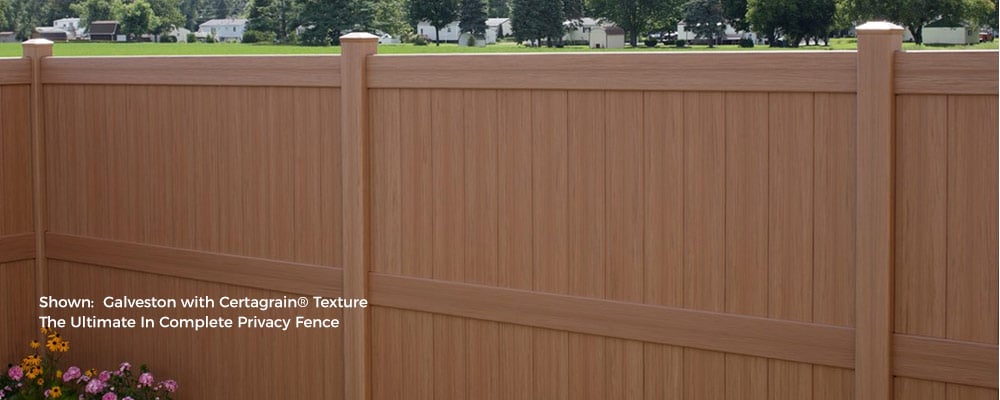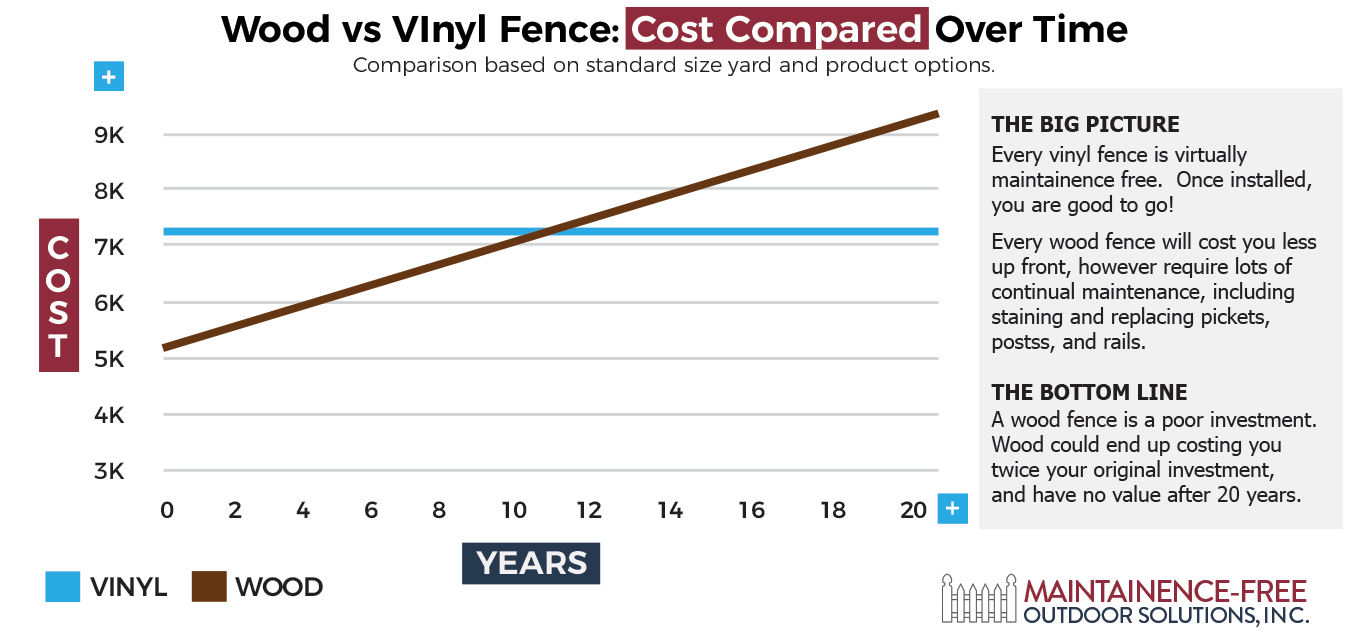Looking to expand your knowledge about fences? Well, you’ve come to the right place! At the “Fencedude” blog, we’re dedicated to providing comprehensive and engaging content all about fences. Whether you’re interested in wooden fences or vinyl fences, we’ve got you covered. With our informative posts, we’ll delve into the intricacies of different fence types, sizes, shapes, and materials. We’ll discuss the benefits, considerations, durability, and maintenance requirements of each type, helping you make informed decisions when selecting and installing fences. Plus, we’ll answer common questions asked by people like you, making this blog your go-to resource for all things fence-related. So, let’s dig into the world of fences and discover which type suits your needs best!
Vinyl Fences
Vinyl fences have become a popular choice for homeowners and property owners due to their numerous advantages. This article will explore the benefits of vinyl fences, their durability, maintenance requirements, and aesthetic appeal. We will also discuss the suitability of vinyl fences for different purposes, how to choose the appropriate size and shape, and compare vinyl fences with other fence types. Lastly, we will provide insights on the cost of vinyl fences and answer common questions about them.
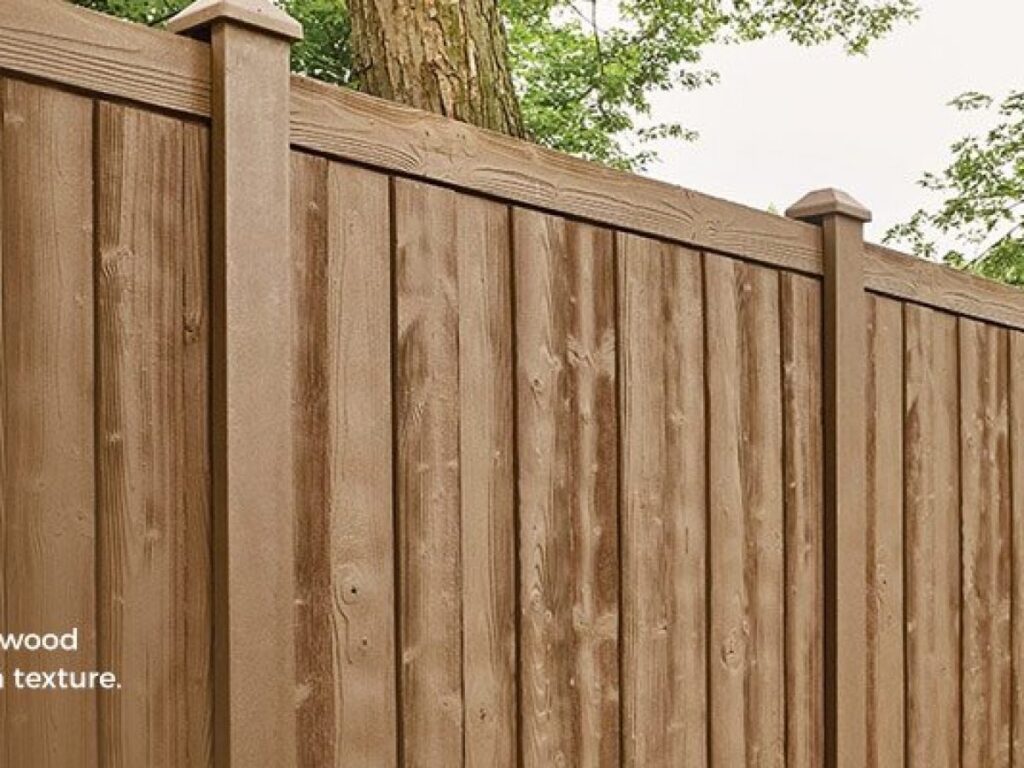
Advantages of Vinyl Fences
-
Low Maintenance: One of the major advantages of vinyl fences is that they require minimal maintenance. Unlike wood fences that may need regular staining or painting, vinyl fences do not require any painting or staining. They can simply be cleaned with soap and water to maintain their appearance.
-
Durability: Vinyl fences are known for their durability. They are resistant to rot, insects, and environmental factors such as moisture and extreme temperatures. This makes vinyl fences a long-lasting option that will not deteriorate over time.
-
Wide Range of Colors and Styles: Vinyl fences offer a wide range of colors and styles to choose from, allowing homeowners to find the perfect fence that matches their personal preferences and complements the style of their property.
-
Resistant to Rot, Insects, and Environmental Factors: As mentioned earlier, vinyl fences are resistant to rot, insects, and various environmental factors. This makes them a great option for areas with moisture or termite problems.
-
Easy to Clean: Vinyl fences can be easily cleaned with soap and water, making the maintenance process hassle-free. This is ideal for busy homeowners who do not have the time or energy to dedicate to extensive fence maintenance.
-
Long Lifespan: Due to their durability, vinyl fences have a long lifespan. With proper maintenance, they can last for several decades, saving homeowners the hassle and cost of frequent fence replacements.
-
No Painting or Staining Required: Unlike wood fences that may require occasional painting or staining, vinyl fences do not need any such maintenance. This saves homeowners both time and money in the long run.
-
Doesn’t Warp, Split, or Crack: Vinyl fences retain their shape and appearance over time. They do not warp, split, or crack like wood fences, ensuring that they continue to look aesthetically pleasing for years to come.
-
Provides Privacy: Vinyl fences are available in a variety of heights, allowing homeowners to choose the level of privacy they desire. Taller vinyl fences can provide excellent privacy and security for properties.
-
Cost-effective in the Long Run: Although vinyl fences may have a higher initial cost compared to other fence types, they are cost-effective in the long run due to their durability and low maintenance requirements. Homeowners can save money on repairs, painting, and staining over the lifespan of the fence.
Disadvantages of Vinyl Fences
While vinyl fences offer numerous advantages, it is important to consider their disadvantages as well:
-
Limited Design Options: Compared to wood and other materials, vinyl fences have limited design options. They may not offer the same level of customization or intricate designs that can be achieved with wood or metal fences.
-
Initial High Cost: Vinyl fences generally have a higher initial cost compared to other fence types. This can be a deterrent for homeowners working with a tight budget.
-
Vulnerable to Extreme Weather Conditions: Vinyl fences can be vulnerable to extreme weather conditions, such as high winds or heavy snowfall. In such cases, they may be prone to damage or require extra reinforcement.
-
Potential for Fading or Yellowing: Over time, vinyl fences may show signs of fading or yellowing due to prolonged exposure to sunlight. This can affect the aesthetic appeal of the fence.
-
Difficult to Repair: Unlike wood fences that can be easily repaired by replacing individual boards, vinyl fences can be challenging to repair. If a section of the fence is damaged, it may require replacing the entire panel, which can be costly.
-
Lack of Authenticity: While vinyl fences can mimic the look of wood or other materials, some homeowners may prefer the authentic appearance and feel of natural materials.
Durability of Vinyl Fences
Vinyl fences are known for their durability and ability to withstand various environmental factors. Here are some key aspects of their durability:
-
Weather Resistance: Vinyl fences are designed to withstand harsh weather conditions, including rain, snow, and high winds. They are not prone to rotting or warping when exposed to moisture.
-
Resistance to Rot and Insects: Vinyl fences are resistant to rot and do not attract insects like termites. This makes them a great option for homeowners looking for a fence that will remain intact for years to come.
-
Withstands Chemicals: Vinyl fences are resilient to chemicals such as lawn care products and cleaners. This means that accidental spillages or exposure to chemicals will not damage or weaken the fence.
-
Impact Resistance: Vinyl fences have a certain level of impact resistance, making them less likely to dent or scratch upon impact. This can be important for properties with children or pets who may accidentally bump into the fence.
-
UV Resistance: Vinyl fences are designed to withstand UV rays from the sun without fading or deteriorating. This makes them ideal for properties in sunny locations where prolonged sun exposure is a concern.
Maintenance of Vinyl Fences
One of the major advantages of vinyl fences is their low maintenance requirements. Here are some key points to consider when maintaining vinyl fences:
-
Cleaning: Vinyl fences can be easily cleaned with soap and water using a sponge or a soft brush. Simply dampen the surface of the fence, apply a mild detergent or soap, and gently scrub away any dirt or grime. Rinse the fence thoroughly with water afterward.
-
Inspecting for Damage: Regularly inspect your vinyl fence for any signs of damage such as cracks, chips, or loose components. Promptly address any issues you notice to prevent further damage.
-
Repairing Minor Issues: Minor issues with vinyl fences, such as small cracks or loose posts, can usually be repaired. Contact a professional fence repair service to handle these repairs and ensure that the fence remains in good condition.
-
Preventive Measures: To minimize the need for repairs and to keep your vinyl fence in optimal condition, consider taking preventive measures. Trim any overgrown vegetation near the fence, avoid hanging heavy objects on the fence, and prevent any impacts or accidents that could cause damage.
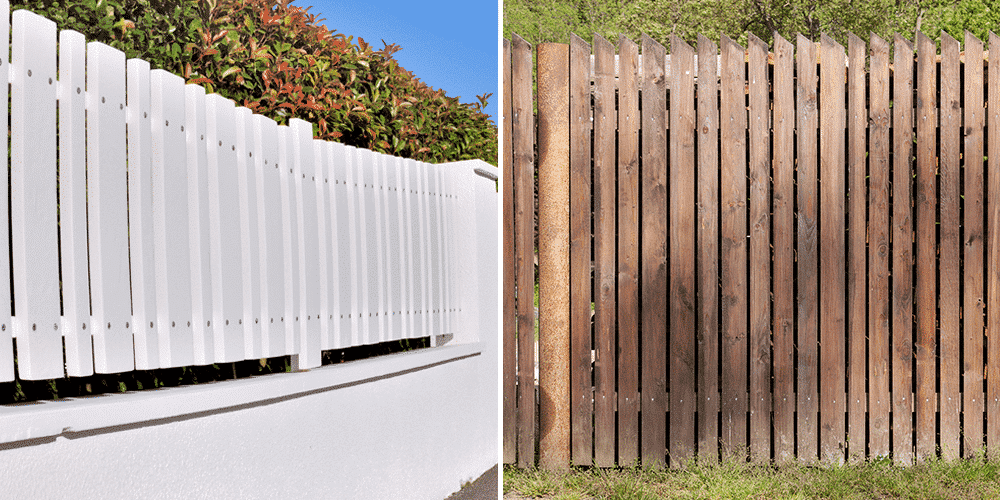
Aesthetic Appeal of Vinyl Fences
Vinyl fences offer a range of aesthetic benefits, making them a popular choice for homeowners. Here are some key points regarding their aesthetic appeal:
-
Variety of Colors and Textures: Vinyl fences come in a wide range of colors and textures, allowing homeowners to choose a fence that matches their preferred style and complements the aesthetics of their property. From classic white to earth tones, there are options to suit every taste.
-
Mimics the Look of Wood or Other Materials: Many vinyl fences are designed to mimic the appearance of wood or other materials such as stone or wrought iron. This allows homeowners to enjoy the look of these materials without the associated maintenance or cost.
-
Consistent Appearance: Unlike wood fences that may fade or change color over time, vinyl fences retain their color and appearance for many years. This consistency ensures that your fence will continue to look visually appealing.
-
Visually Pleasing: Vinyl fences have a clean and polished appearance that can enhance the overall look of a property. Whether you prefer a traditional or modern aesthetic, vinyl fences can add a touch of elegance and sophistication.
Suitability of Vinyl Fences for Different Purposes
Vinyl fences are suitable for a wide range of purposes, offering both practical and aesthetic benefits. Here are some common purposes for which vinyl fences are often chosen:
-
Enhancing Privacy: Vinyl fences, especially taller ones, are an excellent choice for enhancing privacy in residential or commercial properties. They provide a solid barrier that limits visibility from the outside, ensuring that your outdoor space remains private.
-
Ensuring Security: With their durability and solid construction, vinyl fences can help enhance the security of your property. They create a clear boundary line and discourage unauthorized access.
-
Enclosing a Backyard: Many homeowners choose vinyl fences to enclose their backyard, creating a safe space for children and pets to play. Vinyl fences provide a secure barrier that prevents children and pets from wandering off.
-
Adding Decorative Elements: Vinyl fences can also serve as decorative elements to enhance the overall aesthetics of a property. They can be adorned with decorative caps, lattice panels, or other architectural accents to create a unique and eye-catching look.
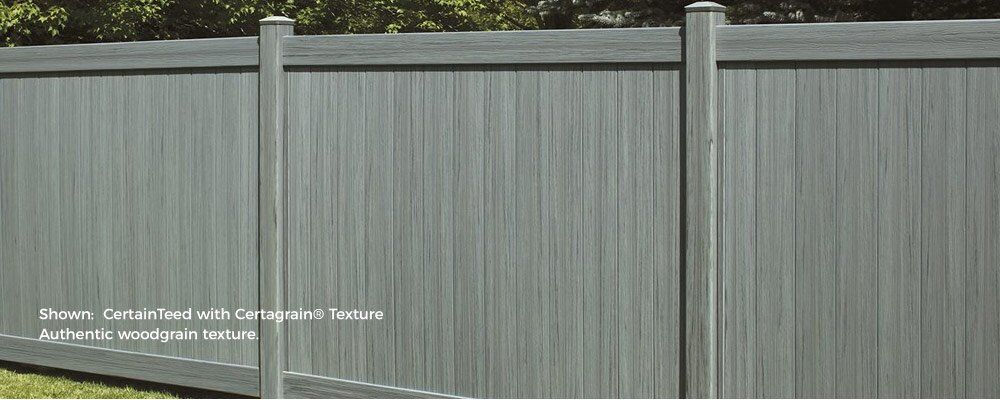
Choosing the Appropriate Size and Shape of Vinyl Fences
Choosing the right size and shape of a vinyl fence is crucial to meet your specific needs. Here are some factors to consider when selecting the appropriate size and shape:
-
Considering Property Size: Assess the size of your property and determine the amount of space you want to enclose. Measure the perimeter where you plan to install the fence and consult with a professional to determine the appropriate fence length.
-
Determining the Level of Enclosure: Deciding on the desired level of enclosure is important. If privacy is a priority, taller vinyl fences are recommended. If you simply want to mark boundaries or provide a decorative touch, a shorter fence may suffice.
-
Architectural Considerations: Take into account the architectural style of your property when choosing the size and shape of the vinyl fence. Ensure that the fence complements the overall aesthetics of your home and blends well with the surrounding landscape.
-
Local Regulations and HOA Guidelines: Check with local authorities and homeowners’ associations (HOAs) for any specific regulations or guidelines regarding fence heights, shapes, or materials. Compliance with these regulations is essential to avoid any legal issues or disputes.
Common Questions about Vinyl Fences
-
How long can a vinyl fence last?
- Vinyl fences can last for several decades with proper maintenance and care.
-
Can vinyl fences withstand strong winds?
- Vinyl fences are designed to withstand normal wind conditions. However, in areas with frequent high winds, additional reinforcements may be required.
-
Are vinyl fences prone to cracking or warping?
- Vinyl fences are resistant to cracking and do not warp like wood fences. However, extreme temperatures or accidents can potentially cause damage.
-
Can vinyl fences be installed on sloped terrain?
- Vinyl fences can be installed on sloped terrain, although it may require special considerations and additional leveling.
-
How do I clean a vinyl fence?
- Vinyl fences can be cleaned with soap and water using a soft brush or sponge. Avoid using harsh chemicals or abrasive materials that may damage the fence.
-
Is it difficult to repair a vinyl fence if damaged?
- Repairing minor issues on a vinyl fence, such as small cracks or loose components, can usually be done by a professional fence repair service. However, more extensive damage may require replacing sections of the fence.
-
Can I customize the color of a vinyl fence?
- Some vinyl fence manufacturers offer customization options, allowing homeowners to choose from a variety of colors and finishes. However, customization options may vary depending on the manufacturer and specific product.
-
Are vinyl fences safe for pets?
- Vinyl fences are generally safe for pets. However, it is important to ensure that the fence height and design are appropriate for your pets to prevent them from escaping or getting stuck.
-
Can I install a vinyl fence myself?
- It is possible to install a vinyl fence yourself if you have the necessary tools and skills. However, for optimal results, it is recommended to hire professionals who specialize in fence installation.
-
What is the average cost of a vinyl fence?
- The cost of a vinyl fence can vary depending on factors such as fence length, height, design, and the specific manufacturer. On average, vinyl fences can range from $20 to $40 per linear foot, including installation.
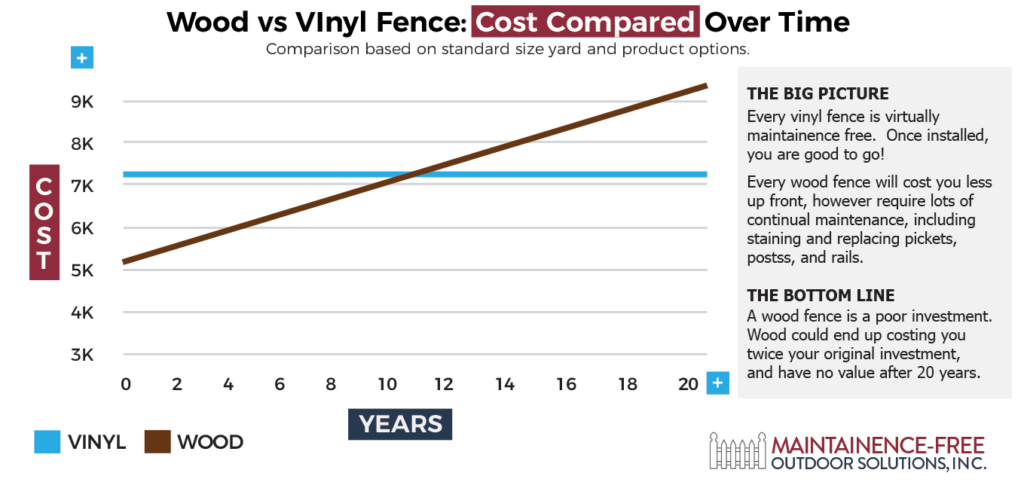
Comparison of Vinyl Fences with Other Fence Types
To help you make an informed decision, let’s compare vinyl fences with other common fence types:
-
Vinyl vs. Wood Fences: Vinyl fences require less maintenance and have a longer lifespan compared to wood fences. They are also more resistant to rot, insects, and weathering. However, wood fences offer a more natural and authentic look.
-
Vinyl vs. Chain-Link Fences: Vinyl fences offer more privacy and a cleaner appearance compared to chain-link fences. They are also more durable and require less maintenance. However, chain-link fences are generally more affordable.
-
Vinyl vs. Metal Fences: Vinyl fences provide a similar aesthetic to metal fences, but with lower maintenance requirements and without the risk of rusting. Metal fences, however, may offer more strength and security.
-
Vinyl vs. Composite Fences: Vinyl fences and composite fences are both low maintenance options. However, composite fences are typically made of a combination of wood fibers and recycled plastic, offering a more sustainable and eco-friendly choice.
-
Vinyl vs. Aluminum Fences: Vinyl fences and aluminum fences have similar low maintenance requirements. However, vinyl fences offer more variety in terms of styles and colors, while aluminum fences are generally more lightweight.
Cost of Vinyl Fences
The cost of vinyl fences can vary depending on several factors. Here’s what you should consider when estimating the cost:
-
Factors Affecting the Cost of Vinyl Fences: The cost of vinyl fences can be influenced by factors such as fence length, height, design complexity, terrain conditions, and the specific manufacturer or supplier.
-
Average Cost per Linear Foot of Vinyl Fences: On average, vinyl fences can range from $20 to $40 per linear foot, including installation. However, this cost can vary depending on geographic location and other factors.
-
Cost of Installation and Additional Expenses: When considering the cost of vinyl fences, it’s important to include the cost of professional installation if needed. Additionally, consider any additional expenses such as permits, materials for posts and gates, and any customization options.
In conclusion, vinyl fences offer various advantages such as low maintenance, durability, a wide range of colors and styles, resistance to rot and insects, easy cleaning, long lifespan, no painting or staining requirements, and privacy. However, there are also disadvantages to consider, such as limited design options, high initial cost, vulnerability to extreme weather conditions, potential for fading or yellowing, difficulty in repairs, and lack of authenticity. Vinyl fences are durable, weather-resistant, rot-resistant, withstand chemicals, and have impact resistance and UV resistance. Maintenance involves regular cleaning, inspecting for damage, repairing minor issues, and taking preventive measures. They have aesthetic appeal due to a variety of colors and textures, mimicry of wood or other materials, consistent appearance, and visually pleasing design. Vinyl fences are suitable for enhancing privacy, ensuring security, enclosing backyards, and adding decorative elements. Choosing the appropriate size and shape involves considering property size, the desired level of enclosure, architectural considerations, and local regulations or HOA guidelines. Common questions about vinyl fences have been answered, ranging from lifespan to installation possibilities, customization options, and cost. Vinyl fences have been compared with other fence types such as wood, chain-link, metal, composite, and aluminum fences, highlighting the unique features of each. Lastly, the cost of vinyl fences has been discussed, noting the factors affecting the cost, average cost per linear foot, and additional installation expenses.
